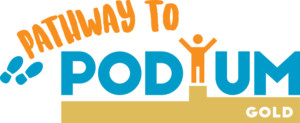Phonics
Intent
At Marlborough Primary School we use the Read, Write Inc. Phonics programme to teach discrete phonic lessons and early reading in EYFS and Key Stage 1. Through this structured and pacey programme children gain the phonological knowledge (at the appropriate stage) they need in order to become confident and fluent readers and writers.
Read, Write Inc. has 5 underlying principles – the five Ps:
- PACE – no time is wasted during teaching sessions! Children are active and involved in a fun and creative way. The aim is for the children to complete the programme as quickly as possible.
- PRAISE – teachers praise the children constantly throughout the teaching sessions. Children learn more quickly when they are praised for what they do well, rather than nagged for what they do wrong. The children are encouraged to praise each other and as a school we have developed several ‘Praise Phrases’ and ‘Praise actions’! Ask your child to demonstrate!
- PURPOSE – each activity has a very clear purpose. The teacher will set this purpose at the beginning of the lesson so that the children know exactly what they will be learning.
- PARTICIPATION – all children take part in all parts of the lesson. Full participation is gained through partner work and choral response.
- PASSION – as a staff we are passionate about our teaching and the benefits of the Read, Write Inc. programme! We love teaching the sessions and this enthusiasm rubs off onto the children.
Implementation
It is taught daily in Nursery, Reception, Year 1 and Year 2 (autumn term/Yr 2 phonic re-takes).
Nursery learns a collection of Nursery rhymes and play ‘Fred’ games daily during the Autumn term. They begin learning set 1 sounds in the summer term.
Reception Teach speed set 1 and set 2 sounds/Fred talk
Year 1 Recap of speed sounds set 2
Teach speed sounds set 3
KS 2 Speed sounds set depends on the individual child’s phonologically knowledge.
Impact
- Increased percentage of children achieving the expected standard in the Phonics screening check at the end of Year 1.
- Children will meet the expected phonics standard at the end of Reception, Year 1 and Year 2.
- Children achieving the ARE in the EYFS profile for reading.
- Children achieving the ARE in Reading at the end of Key stage 1.
All of the above are measured through the regular RWI and PSC assessments which take place with each child every half term.
Age Related Expectations using the RWI phonics programme.




